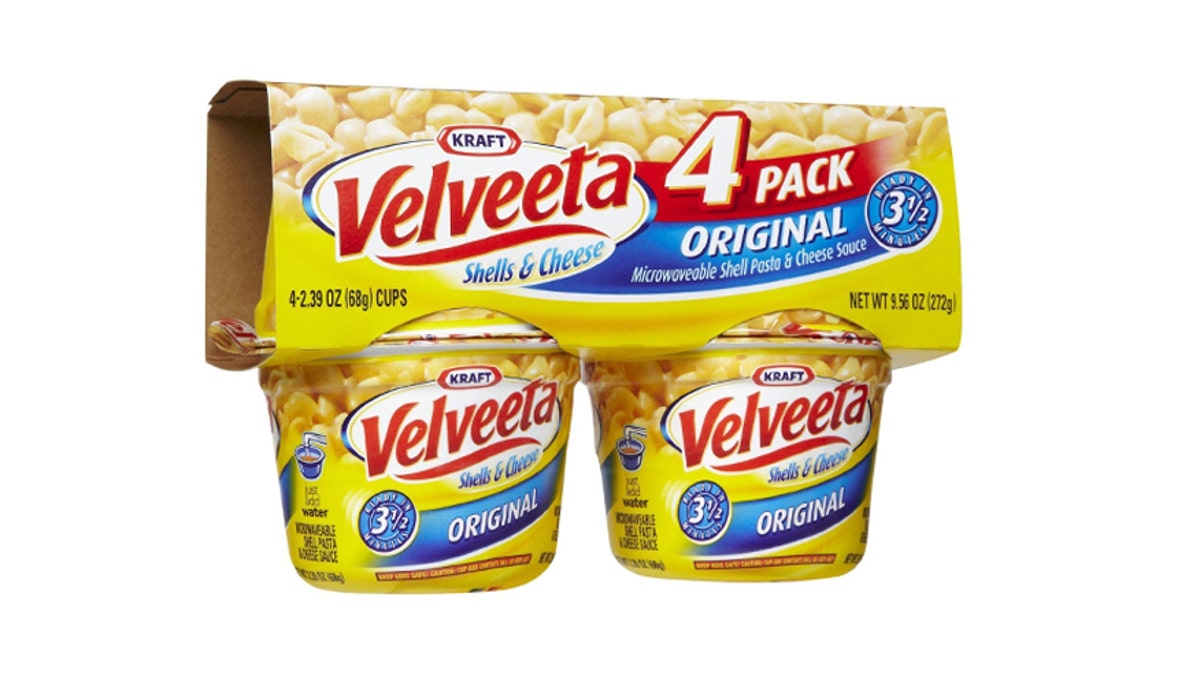
Single servings of Kraft's Velveeta product. (Kraft Foods)
Velveeta processed cheese has been around since 1918, but it's popularity has been waning as America look for healthier food options --and products, like its single-serve cheese sauce were just sitting on shelves at traditional grocery stores.
Kraft was about to yank the product, but that all changed when Kraft turned to dollar stores, when executives discovered the smaller packets of sauce are being gobbled up by hungry consumers, reports Reuters.
"We're in the business of feeding all American families, and that's where consumers are going," Tom Lopez, vice president of growth channels at Kraft, told Reuters.
Dollar stores have seen a boom in single serve package food items priced between usually priced between $1 and $10. Kraft noted an 8 percent rise in sales of its products at dollar stores, drug stores and big box retailers in the first eight months of last year.
And it's not just Kraft. General Mills, for example, in response to an increase of baby boomers at dollar stores looking for smaller quantities, started putting its Fiber One brand on the shelves of dollar stores, and have seen sales spike. According to Reuters, companies Kraft, General Mills and Campbell Soup all carry several brand named items in these stores.
"They [Kraft] have been for a very long period of time this kind of staple of the middle class," Robert Passikoff, president at Brand Keys, a brand consultant in New York, told Reuters. "That doesn't really seem to be the case anymore. If people are not flocking to those brands, you need to be able to look for other audiences and other distribution points."
Even with an improved retail strategy, Kraft will still have to work to appeal to conservative spenders who strapped for cash. The company has been testing new products in its in-house kitchen that they believe will appeal “budget conscious” consumers.
"There is no room for waste," Robin Ross, director of Kraft Kitchens, told Reuters.
"There is no room to choose products and recipes that won't go over well in our families. We know that in some of these households there might be higher propensity to buy canned foods or vegetables because there is more of a guarantee that those products won't go bad before it's time for use."
While packaged and canned goods reduce waste risk, industry experts believe budget retailers will also be making a move to stock their shelves with more natural, organic, or gluten-free products that are desired by American families at all income levels.
